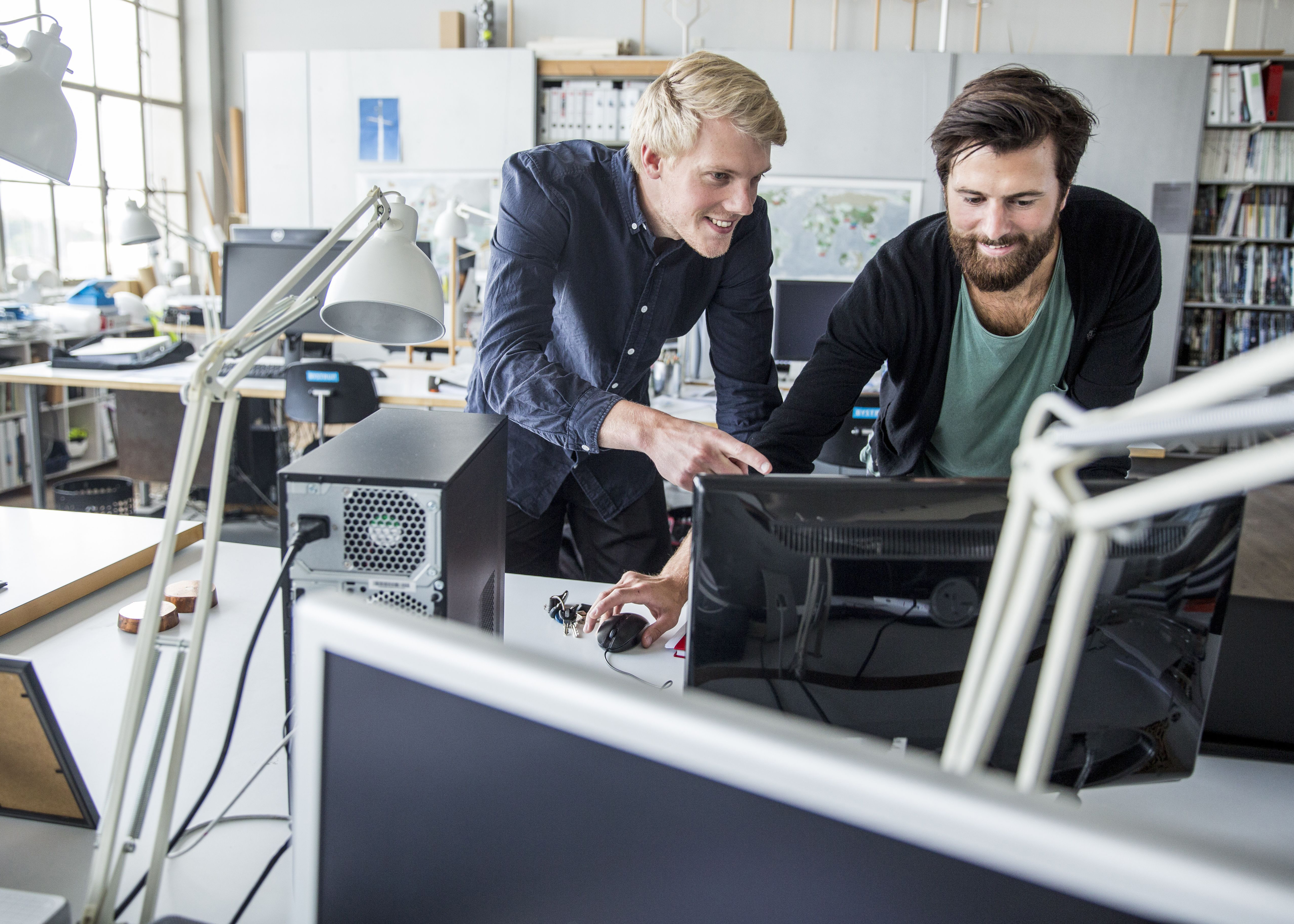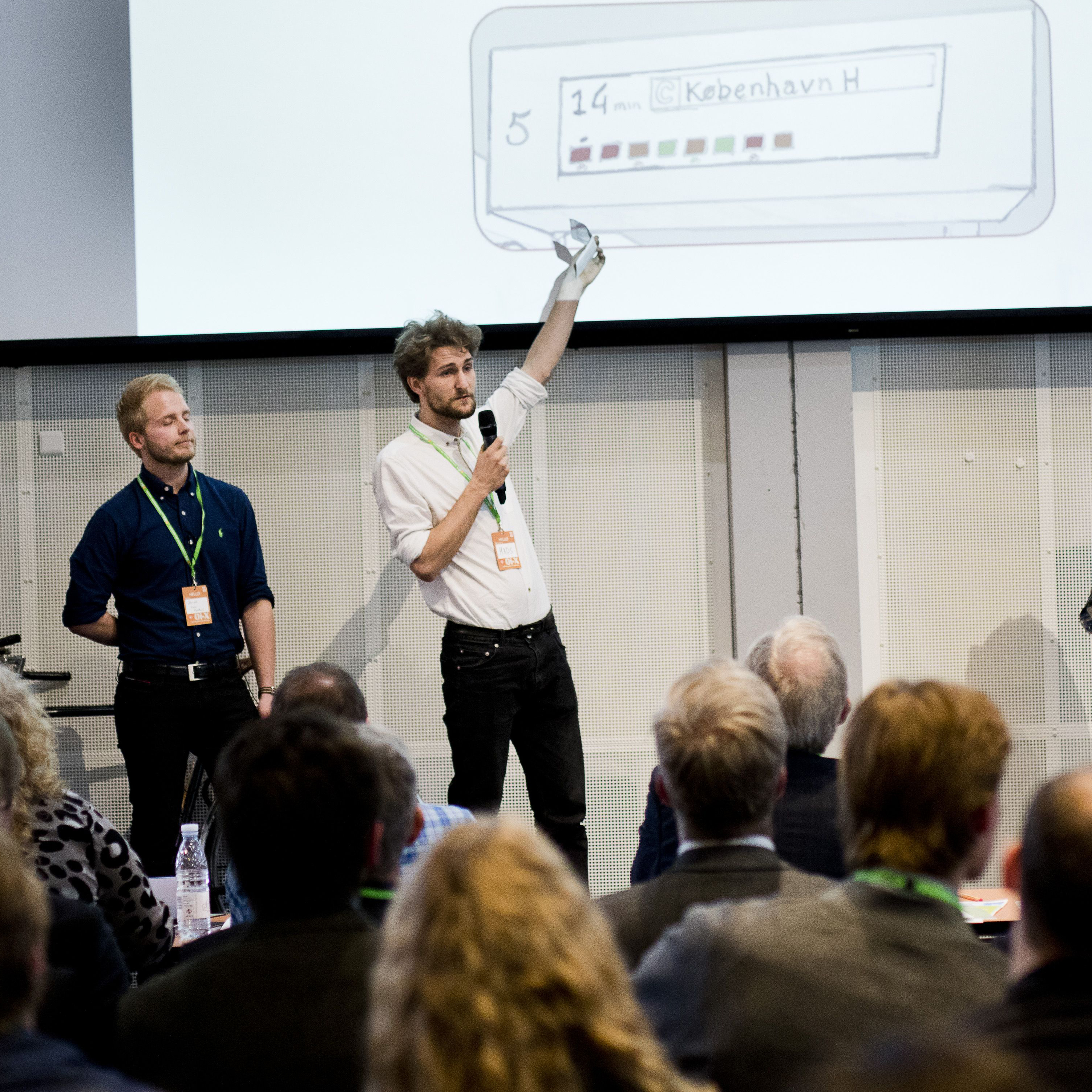The A.P. Møller Relief Foundation has donated DKK 80 million to a significant extension of DTU Skylab. The vision is to create a world-class hub for technology-based innovation.
With a generous donation of DKK 80 million from the A.P. Møller Relief Foundation, DTU is extending its student innovation house with facilities to support project maturation and utilization of growth-driving technologies, among other activities. The current house of 1,550 square metres will thus be extended into a new overall DTU Skylab which is more than three times as large as the existing premises.
The vision is actively to involve students, researchers, entrepreneurs, and the business sector in an open interdisciplinary ecosystem for technology and business. The new DTU Skylab will house a ‘business lab’, in which enterprises can be at the cutting edge in handling significant technology and market changes. There will also be a new large 'tech lab' for building large-scale prototypes and developing projects into specific solutions and start-ups.
“DTU is increasingly cultivating innovation and entrepreneurship, and DTU Skylab is a very important piece in this strategy. It’s actually such a huge success that we can hardly wait to expand it. So, it’s fantastic that we’ve received such generous support for a fast extension of the premises to the benefit of both students and the Danish business sector,” says DTU President Anders Overgaard Bjarklev.
Activities have grown significantly
Since the opening of DTU Skylab in 2013, the environment and activities such as startup coaching, pitching events, and hackathons have grown significantly. Today, the interest is so high that DTU Skylab does not have the capacity to meet the demand. Last year alone, more than 75,000 visitors entered the innovation house. More than 300 prototypes were built in DTU Skylab’s workshops, and over 130 student startups and pre-startups received sounding board input and help. In addition to the students, innovation-oriented enterprises and researchers have shown an ever-increasing interest in being part of the DTU Skylab ecosystem.
‘‘DTU is currently at the forefront in cooperation between university and industry. DTU also makes a significant contribution to the Danish business sector by supporting the establishment of scalable, high-tech start-ups which can develop business opportunities based on international top-class research knowledge,” says Marianne Thellersen, Senior Vice President for Innovation and Entrepreneurship. She adds:
DTU Skylab will be a catalyst
‘‘As an elite technical university with a strong environment for technological innovation and entrepreneurship, DTU has a special responsibility for ensuring that Denmark can be at the forefront of this development. And the new DTU Skylab will be a catalyst for this.”
According to Henrik Tvarnø, Executive Vice President of the A.P. Møller Relief Foundation, DTU has chosen to pursue new paths with DTU Skylab and has quickly achieved great results:
‘‘It’s a pleasure to visit the place and experience the bright students’ energy and activity level. The Foundation is therefore not in any doubt that a new building will make it possible to achieve even more useful results of the encounter between students, researchers, start-ups, and the Danish business sector.”
Student start-up rooted in DTU Skylab

Martin Sander Nielsen (left) and Christian Michelsen, co-founders of the enterprise Relibond. Photo: Nikolai Linares
Behind the DTU start-up enterprise Relibond are two former DTU students, Martin Sander Nielsen and Christian Michelsen. Together, they have spent many hours in the workshops at DTU Skylab. So many, that it almost feels like their second home. They put in particularly many hours in the engineering workshop with the team from DTU Skylab, where they used a CNC milling machine, lathe and band saw to prepare cable samples and prototypes prior to experiments, tests and measurements.
The work led to a new technology for joining underground high-voltage cables. The technology is particularly intended for field joining of the highly efficient cables of the future. The solution is flexible and robust, and the installation time is reduced significantly compared with existing solutions. At the same time, the electrical resistance in the joint is minimal. In collaboration with international cable manufacturers, Relibond is thus contributing to technological innovation in this field. The aim is to secure tomorrow’s transmission grids. Relibond was named Student Start-up of the Year at DTU in 2016.
Open Innovation X

Four students pitching their solution at the Oi-X final, where they present their proposal for new intelligent data-based solutions for public transport. Photo: Kaare Smith
Twice a year, large corporations provide students with current challenges under the auspices of Open Innovation X. Oi-X is a partnership in which students receive sounding board input from companies, and the hack format is facilitated by DTU Skylab.
In autumn 2016, the theme was Big Data and Service Innovation. Here, six companies challenged more than 100 students in the OiX final to solve a wide range of problems. The challenges ranged from wind turbine optimization and bacterial growth in food production to the buying habits of Danish consumers. In autumn 2017, an Oi-X will be held with Food as the theme.